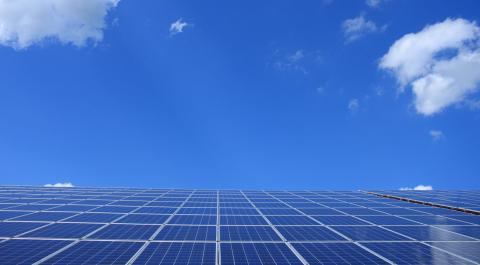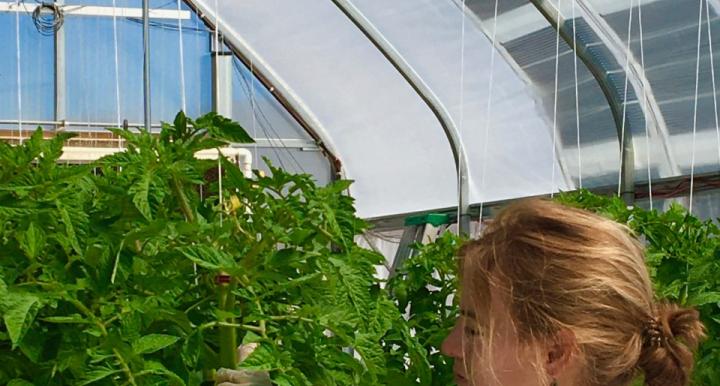Resilience Engineering
Taking on today’s pressing challenges – intractable and emerging diseases, cybersecurity, aging infrastructures, economic uncertainties and big data management – requires expertise from many disciplines. Arizona Environment focuses engineering research on far-reaching, interdisciplinary solutions for high priority societal issues.

UArizona engineering faculty and students collaborate with researchers across the university and around the globe on projects that improve quality of life. Arizona Environment focuses on sustainability and infrastructure, such as water treatment and reuse, bioremediation, biofuels and renewables, infrastructure networks including water, transportation and energy; our research also focuses on advanced manufacturing, such as materials testing, nanotechnology and computer modeling. Our unique approach to resilient design uses an interdisciplinary, systems-based approach to prepare for a future that is anticipates and prepares for rapid change in social and physical systems.
Research Spotlights in Resilience Engineering
Edward Franklin
Agriculture Education and Agricultural-Biosystems Engineering
Franklin works on the adoption and integration of sustainable agricultural practices, such as rainwater harvesting collection systems and portable solar-powered water pumping systems.
Read moreAletheia Ida
College of Architecture, Planning, and Landscape Architecture
Ida’s research interests include integrating design theory in emergent environmental building technologies, incorporating aspects of material inventions with socio-environmental performance criteria.
Read moreVicky Karanikola
Chemical and Environmental Engineering
Karankola is developing water purification systems for groundwater high in salinity and contaminated with metals, including uranium.
Read moreRobert Arnold
Chemical and Environmental Engineering
Arnold’s research aims to minimize energy demands for water distribution systems and membrane distillation systems, to help provide potable water in low-population areas.
Read more
(AIR) coordinates interdisciplinary groups of faculty, students and projects across the University of Arizona’s campus, from climate science to public policy, law, the arts, water resources and beyond. AIR explores and develops solutions with campus and community partners that will serve human and natural communities across the globe.
Read more
BIO5 aims to harness the collaborative power of five main disciplines—agriculture, engineering, medicine, pharmacy, and science—to find bold solutions to address major challenges in the biosciences, biomedicine and biotechnology affecting humanity today.
Read more
Biosphere 2 serves as a unique large-scale experimental apparatus housing seven model ecosystems with active research by teams of multidisciplinary scientists.
Read more
The vision of the Controlled Environment Agriculture Center is to develop controlled environment agriculture as an economically, environmentally, and socially sustainable agricultural option.
Read more
The Center for Environmentally Benign Semiconductor Manufacturing is a multi-university research center leading the way to environmentally friendly semiconductor manufacturing.
Read more
IES promotes and undertakes work to: more reliably integrate renewable energy into the grid; develop novel materials for energy conversion, energy-efficient water use and intelligent building technologies; support regional test beds and facilities and study the societal and economic impacts of technological advancements in energy.
Read more
The Lowell IMR has been created to advance scientific, technological and educational aspects of mineral discovery, extraction and processing, including the environmental and societal issues that accompany these processes.
Read more
The Office of Sustainability works to ensure that the UA continues to be a leader in sustainability among its peers. They collaborate with partners across the University and throughout the community to coordinate environmental sustainability initiatives and communication.
Read more
The School of Sustainable Engineered Systems will be a leader in the improved design of linkages between our natural and engineered systems to sustainably provide material resources, water, energy, infrastructure, and manufactured products through innovative education, research, and outreach.
Read more
The SBAR Center of Excellence works to optimize and integrate the production of guayule and guar to enable the Southwest U.S. to significantly impact biofuel and other high-value product markets and to improve quality of life in rural communities and Native Nations.
Read more
The Transportation Research Institute addresses the mobility, safety and environmental challenges of a rapidly evolving transportation landscape, building on UA expertise in emerging transportation systems and critical, enabling technologies.
Read more
Located on the grounds of the College of Architecture, Planning and Landscape Architecture building on the UA campus, the Underwood Family Sonoran Landscape Laboratory represents the reclamation of 1.2 acres of former university parking lot into a viable Sonoran Desert landscape, with high-performance integration of the building and site. It demonstrates low-cost arid land design principles of water harvesting, water reuse, mitigation of desert microclimates and reduction and re-direction of runoff for passive and active storage as well creating an enchanting desert oasis.
Read more
The WEST Center is a world renowned venue focused on advanced treatment and detection of emerging microbial and chemical contaminants in municipal wastes and reclaimed water, alternative energy and related technologies.
Read more



